64 years ago, the Glenville Democrat published an article recognizing the Furr family of Dawson Creek Farm, Glenville, WV as participants in the FFBL. Generations later, they are is still farming.
The Farming For Better Living project was developed to give recognition to West Virginia farmers who stood out in the crowd.
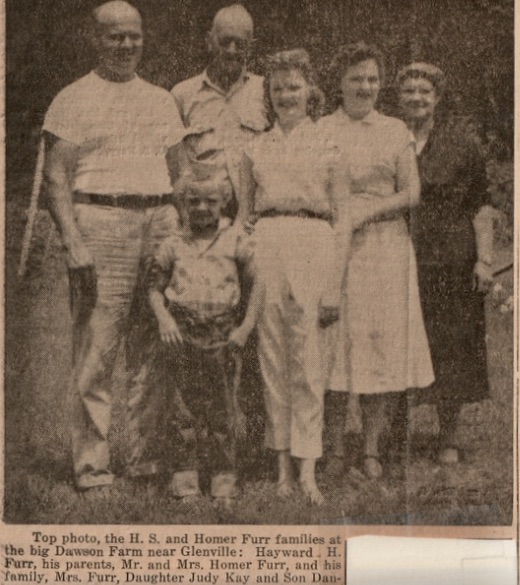
Little Danny Furr, ( October 31, 1950 – November 14, 2017) carried on the tradition when his father could no longer run the farm. Today, Scott Furr and Step-Mother Pamela Campbell Furr continue to raise beef and corn, supplying home raised products for the community.
Below is a description of what the Farming For Better Living (FFBL) project was all about. I’ll share more stories of Gilmer County farm families who won in the competitions, in future posts.
(From the February 7, 1967 Congressional Record- Senate, pg. 2813 )
In July 1937, Mr. Copeman joined the Monongahela Power Company in the Rural Building. Mr. Copeman may be identified as “Mr. Farming for Better Living,” a program that began in 1940 and continued for 30 years. Although he was the director of the program, he was usually out of sight, always in the background, but never out of control. As a director of Framing for Better Living Program, he worked directly with agricultural agencies and with farm families in promoting better farming practices and better living on the farm.
[From the Charleston (W. Va.) Sunday Gazette-Mail, Feb. 5, 1967]
FARMING FOR BETTER LIVING
Farm families in 24 counties of West Virginia feel the influence of West Virginia University in a unique program designed to dramatize good farming practices. The program is “Farming For Better Living” and it’s an example of how industry and the University work together toward a common goal. Each spring, some 2,000 farm families enrolled in Farming For Better Living receive a booklet of recommendations for good farming practices. Each fall these same farm families report on their own farm practices. These reports are graded and a county Farming For Better Living Council makes an award to the top farm family in the county.
The program had its beginning in the late 1930’s. These were the years when the Cooperative Extension Service of West Virginia University was confronted with telling the story of many new agricultural practices that have since greatly increased the production of American agriculture. The liming and fertilization of pastures, artificial breeding (Artificial Insemination, as we know it today) of dairy cattle to high production bulls, crop rotation, contour farming, soil conservation plans, and a myriad of other new and exciting farm ideas needed to be taken to the grass roots levels of farming. At the same time Monongahela Power Co. had been pioneering in the field of area development under A. C. Spurr, who was then president of the electric utility. Spurr’s philosophy was that in order for the utility to prosper, its customers must first be prosperous. Extension and power company officials met together and the result was the Farming For Better Living Program. A program that dramatized the farm recommendations on the grass roots level.
Each year since 1940, cooperative extension officials have updated the FFBL recommendation booklet. Each year the Farming For Better Living awards are made to 24 West Virginia county FFBL Champions, four Regional Champions, and to an overall Sweepstakes Champion. Each county cooperative extension agent works with local and civic and business leaders to enroll farm families, to interpret the farm recommendations, and to grade the farm reports. On the staff of the Monongahela Power Co. is an agricultural counselor at the general offices in Fairmont, WV plus four field agriculture representatives who spark-plug the FFBL program. Local businessmen in each county are represented on the county FFBL Councils and run the program on the local level.
Another program, the outgrowth of this university-utility cooperation, is now called the Community Action Program. The same university-utility effort is expended here to show the small rural community the road to self-improvement. A. C. Spurr served as President of Monongahela Power Co. from 1935 to 1955. He was also a member of the West Virginia Board of Governors from 1946 until his retirement.
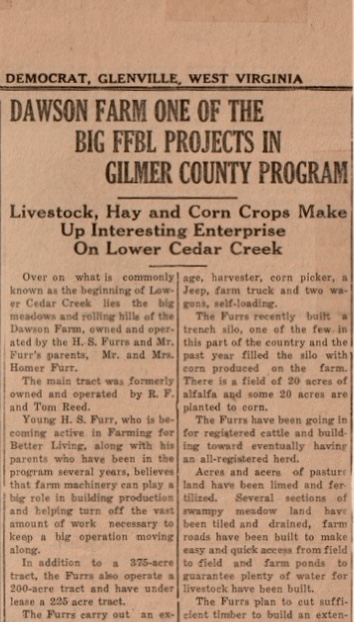
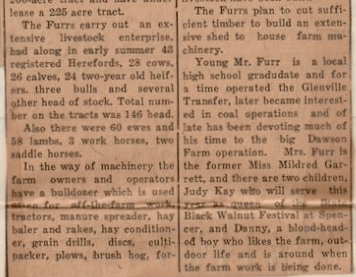
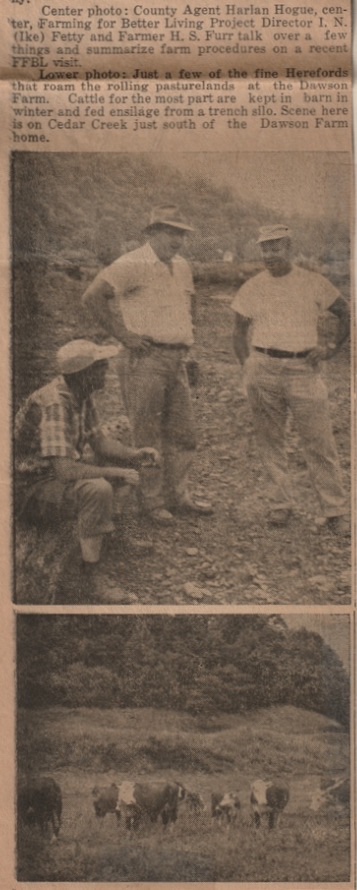
James L. Copeman (1910-2006) devoted 42 years of service to the agricultural industry of West Virginia by working to improve farm and home living conditions and making people happy. Born and raised on a Preston County livestock farm, he devoted his professional career to helping West Virginia rural people. A 1933 graduate of the West Virginia University College of Agriculture, he became a WVU field agent in farm economics in 1934. Mr. Copeman was appointed Assistant County Agent in Ritchie County in 1935 and in December 1935 became County Agent in Taylor County.
(Exert from his obituary)
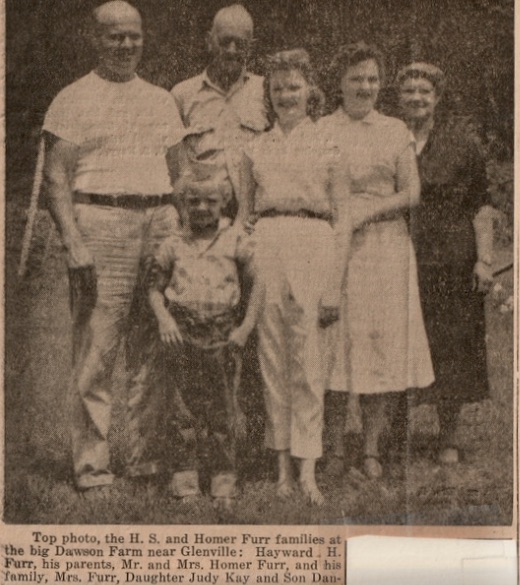

I was looking through some old newspaper clippings at the Historical Society and found something on the Farming For Better Living project. I though, what the heck is that? Took a little digging, but I found the story of its creation and some local farmer families I knew, who had participated in this forgotten competition.